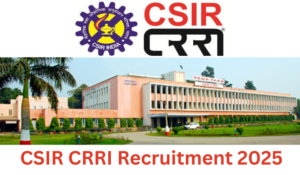Q1. Cattle warts is an infectious disease which is caused by-
(a) Bovine Papilloma virus
(b) Bovine Respiratory Syncytial Virus
(c) Infectious Bovine Rhinotracheitis
(d) Rabies
(e) None of these
Q2. Which of the following are pair of draught Animal?
(a) Horse, Donkey
(b) Lion, Tiger
(c) Dog, Fox
(d) Cow, Goat
(e) Rabbit, goat
Q3. Which of the following organ from the cattle is not used in pharmaceutical product?
(a) Pancreas
(b) Liver
(c) Pituitary gland
(d) Skin
(e) Intestines
Q4. Which is the first state to have eco-friendly bridges for the movement of tigers over a canal, cutting across the tiger corridor?
(a) Tamil Nadu
(b) Telangana
(c) Karnataka
(d) Assam
(e) Uttarakhand
Q5. Which of the following organization has approved setting up of Turtle sanctuary in Allahabad under Namami Gange Programme?
(a) Ministry of Environment, Forest and Climate Change
(b) Ministry of Water Resources
(c) International Maritime Organization
(d) Ministry of Science and Technology
(e) None of these
Q6. To qualify as a Biodiversity Hotspot, the region must comply with two strict criteria, they are:
I. Species endemism
II. Degree of threat
III. Degree of Harbour
IV. Species immigration
(a) I, II, III & IV
(b) I, II & III
(c) I & II
(d) III & IV
(e) None of these
Q7. Which of the following method is not involved in Post-Harvest Technology?
(a) Drying and wet Salting
(b) Boiling and Drying
(c) Chilling
(d) Filtering
(e) None of these
Q8. Which of the following inland freshwater technologies related to fisheries is available in India?
(a) Freshwater Aquaculture
(b) Cage Culture
(c) Brackish Aquaculture
(d) Mari culture
(e) None of these
Q9. The Bureau of Indian Standards (BIS) has been designated as the WTO-Technical Barriers to Trade (TBT) Enquiry Point. Which Ministry is responsible for implementing and administering the WTO agreements on TBT?
(a) Ministry of economic affairs
(b) Ministry of Fisheries and Agriculture
(c) Ministry of Home Affairs
(d) Ministry of commerce
(e) None of these
Q10. How many Regional Meteorological Centers are present in India?
(a) Five
(b) Seven
(c) Six
(d) Ten
(e) Eight
Solutions
S1. Ans (a)
Sol. Cattle warts are caused by Bovine Papilloma virus which is a contagious virus that spreads from infected cattle to noninfected cattle. Bovine Respiratory Syncytial Virus is a stress-related infection that can cause mild to severe respiratory disease and reduce the animal’s resistance to other diseases. Infectious Bovine Rhinotracheitis also known as ‘Red nose’ highly contagious virus causes respiratory disease. Rabies can infect all warm-blooded animals including humans and it attacks the central nervous system, causing death.
S2. Ans (a)
Sol. Draught animals are animals need for carrying load. These, include horse, elephant, camel, donkey and mule. Other animals which is in the option does not carry any load, Lion and Tiger are carnivore’s animals and they are wild animal. Cow and goat are milk producing animal as they give food.
S3. Ans (d)
Sol. Skin is not used in pharmaceutical product, it is usually used in leather manufacturing industries.
Pancreas contains insulin used for treating diabetes, Chymotrypsin can burn heals and wounds, Pancreatin aids digestion of food and glucagon treats hypoglycemia or low blood sugar.
Liver contains Heparin is used as anti-coagulant and liver extract is used as treatment of anemia.
Pituitary gland contain Prolactin promotes lactation; Vasopressin controls intestinal and renal functions. Bone contains Bone marrow is used in the treatment of blood disorders. Thus, option (d) is the correct answer.
S4. Ans (b)
Sol. Telangana is the first state to have eco-friendly bridges for the movement of tigers over a canal, cutting across the tiger corridor. The bridge links Tadoba-Andhari Tiger Reserve (TATR) in Maharashtra with the forests in Telangana. It requires construction of fertile soil to raise grass and plants over the structure, so that fragmentation of the reserve forest is camouflaged.
S5. Ans (b)
Sol. Ministry of Water resources has approved setting up of a Turtle sanctuary in Allahabad under Namami Gange Programme. Rivers Ganga and Yamuna at Allahabad are home to some of the most endangered fauna like turtles, Gangetic dolphin, Gharial and other migratory birds. The Project envisioned the development of River Biodiversity Park along with Turtle rearing centre.
S6. Ans (c)
Sol. In order to qualify as a hotspot, the region must meet two criteria: Species Endemism and Degree of threat. Species endemism means that the region must consists of minimum 1500 different species of vascular plants as endemics. Degree of threat means that the region has to have lost at least 70% of its original habitat.
S7. Ans (d)
Sol. Drying, drying and wet salting, smoking, boiling and drying, smoking and drying, fermenting, icing, fish paste are the traditional post-harvest technologies. Modern technologies include freezing, chilling, fermenting, electric and solar drying, curing and rack drying, canning, fishmeal, and fish products.
Filtering process is not done in post-harvest Technology, hence option (d) is the correct answer.
S8. Ans (b)
Sol. The inland freshwater technologies (i.e. pipeline technologies) are Cage culture, Pen culture, Pearl culture and Running water fish culture. Freshwater aquaculture technologies are for production of table size fish or grow out and fish seed production. The growing out shrimp farming is the most important brackish water aquaculture technology in India. Mariculture technologies are for pearl oyster farming and pearl production, mussel, sea cucumber and seaweed. Post-harvest Technologies include drying and wet salting, smoking, boiling and drying, smoking and drying, fermenting, icing, fish paste, freezing, chilling, fermenting, electric and solar drying, curing and rack drying, canning, fishmeal, and fish products.
S9. Ans (d)
Sol. In India, the Bureau of Indian Standards (BIS) has been designated as the WTO-Technical Barriers to Trade (TBT) Enquiry Point, while the Ministry of Commerce is responsible for implementing and administering the WTO agreements on TBT. India also accepted the Code of Good Practice on 19 December 1995.
S10. Ans (b)
Sol. IMD has six Regional Meteorological Centers namely, Chennai, Guwahati, Kolkata, Mumbai, Nagpur and New Delhi.



 GA Capsule for SBI Clerk Mains 2025, Dow...
GA Capsule for SBI Clerk Mains 2025, Dow...
 The Hindu Review October 2022: Download ...
The Hindu Review October 2022: Download ...
 Delhi CSIR CRRI Recruitment 2025 Notific...
Delhi CSIR CRRI Recruitment 2025 Notific...




